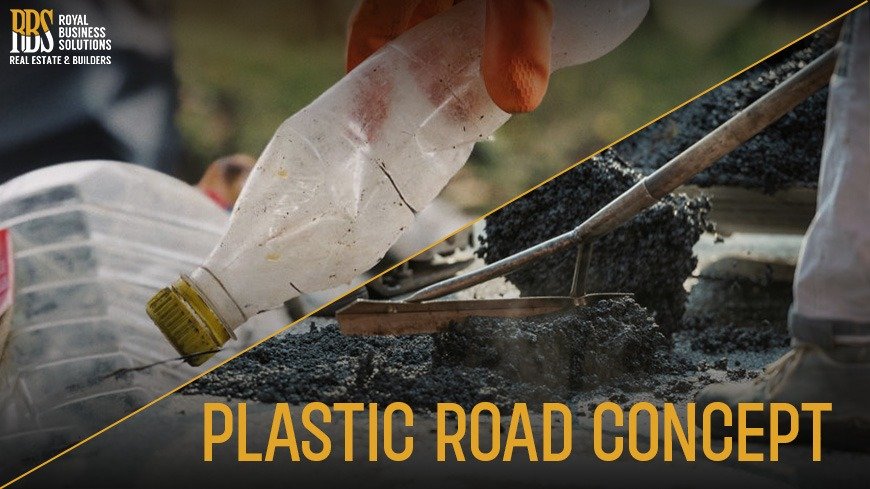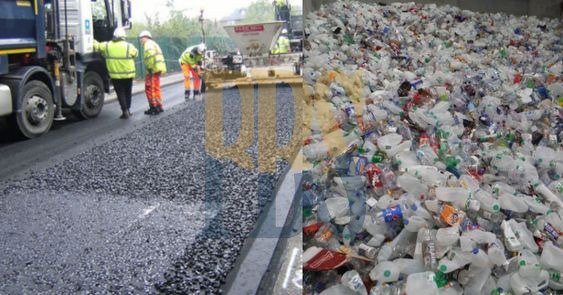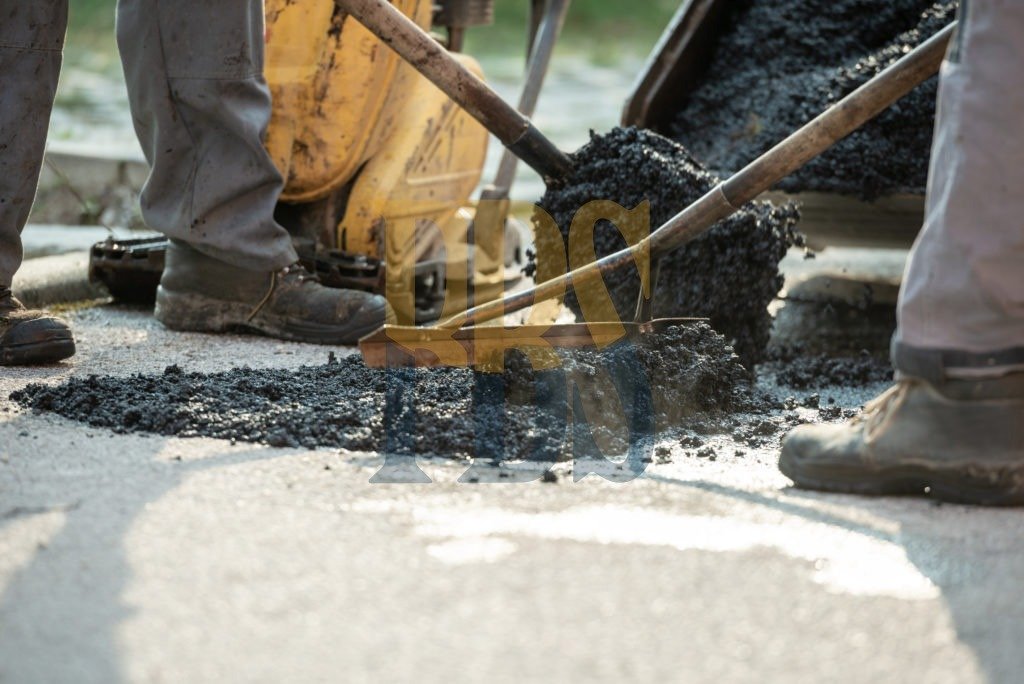- October 11, 2022
- Posted by: Muhammad Shehzad
- Category: Blogs

The plastic road concept is the recently developed idea that demands the creation of roads through recycled plastic. Moreover due to the abundance of plastic waste causes many harmful effects so there is a need to take an action immediately. Plastic roads are constructing of plastic completely or composed of plastics with other materials.
In addition, plastic roads have vacant spaces that can store water temporarily to control flooding during heavy rainfall. To avoid excavation damage, cables and pipelines can also be routing via hollow spaces. Additionally, these plastic roads can also use for sensor installation, electric vehicle charging, and heating roads.
How will Plastic Roads help?
Although the human population cannot survive without plastic, it is a substance that is so harmful that it may be at the forefront of contributing to climate change. Scientists have worked on a fix for decaying plastics for decades, but their study hasn’t been able to figure out this problem.
Recycling is the only option remains, and what better way to recycle plastics in large quantities than to use them to build infrastructure. This was the logic behind the invention of “Plastic Roads in Pakistan,” a practical means of meeting infrastructure requirements while also recycling plastic.

Construction of Plastic Roads
The methods used in building plastic roads differ because the concept is still in its adolescence. Moreover, every country has made an effort to create its own special technique for constructing plastic roadways. India was the first country to try out this concept and created plastic roads using bitumen and plastic. Asphalt and plastic have been combined in experiments in Indonesia. Furthermore, plastics are still the dominating element.
Normally, the roads are made of asphalt which is a combination of binder, filler, and aggregates. However, when roads cooled down it becomes solid and offers abundant durability but their environmental effects are immense. On the other hand, plastic roads contain waste bottles, bitumen, and post-consumer packaging products. Moreover, CDA used a formula that consists of 19% plastic and the remaining asphalt for the perfect binding.

Plastic roads vs asphalt roads
Furthermore, plastic roads are different from other standard roads because those standard roads are constructed with asphalt concrete, which consists of mineral aggregates as well as asphalt. Currently, there are no records made purely of plastic. However, plastic composite roads may exist and possess qualities beyond those of typical asphalt concrete roads, particularly better wear resistance. Moreover, the use of plastic on roads creates a new opportunity for post-consumer plastic recycling. After the construction of a plastic road in Jamshedpur on November 30, 2011, this technology is being reproducing quickly in Jharkhand.
Purpose of Plastic Roads
Plastic roads are constructing to fulfill the following objectives
- The road made of plastic is four times lighter than a conventional road
- As the plastic roads are made from recycled material, it is 100% circular
- Moreover, it should endure three times as long as conventional road paving
- Furthermore, a new road’s approx. construction time would reduce by almost 70%.
Plastic Road in Islamabad
On Dec 6, interior minister Sheikh Rasheed launched the plastic road in Islamabad at Ataturk Avenue. Moreover, the minister said that plastic roads will construct not only in the federal capital but also in other cities.
Furthermore, to build one kilometer plastic road 10 tonnes of plastic bottle waste was utilize. According to the daily newspaper, Islamabad generates 700 tonnes of garbage, of which around 150 tonnes are building up entirely of plastic. Moreover, if the initiative is inflate to the national level, plastic waste from every city can be use to construct more durable roads across the country.

Plastic roads Pros and Cons
Following are the pros and cons of plastic roads
- Power generation and heating can be integrate into plastic roads to prevent the roads from freezing. Moreover, heating will also help to evaporate water from the surface.
- Since plastics have a variety of physical and chemical properties roads can be design to fit specific criteria (e.g. weather and wear resistance)
- Plastic waste, the majority of which is often thrown off in landfills, burned, or polluted into the environment, can be used to construct plastic roads. Moreover, Plastic waste management techniques that involve either landfilling or incineration pose problems. In addition, plastics can release contaminants into the soil around landfills, and burning plastic releases pollutant gases like carbon dioxide.
- Roads made with plastic-bitumen composites need not be particularly picky about the plastics they utilize, increasing the amount of plastic that is recycle. Moreover, the majority of plastic trash is not recycle because it is frequently combine with other plastic and non-plastic debris, and because there is currently no simple way to automate the labor-intensive sorting process.
- Furthermore, the uses of plastics lessen the use of asphalt and this is useful for the environment because asphalt is responsible for 2% of global carbon emission.
- It is easier to work with plastic pieces as compared to asphalt.
- Plastic roads are cost-effective and made of recycled plastic, post-consumer plastic is cheaper than asphalt.
- Additionally, it is possible to create interlocking plastic road pieces that may be easily put together and taken apart. On-site construction is now considerably more streamlined and practical. Furthermore, Lower costs are also related to the simplicity and speed of road construction.
Disadvantages of Plastic Roads
- Toxic present in the blend of plastic wastes would start filtering.
- However, the chlorine will undoubtedly cause the release of HCL gas
- The problem of microplastic pollution may get worse as a result of wear on the surface of roadways made entirely of plastic.
A Global Practice- Plastic Roads
Although the idea of plastic roads is new to Pakistan, many other countries all over the world have adopted this practice. Moreover, Australia, the UK, India, Indonesia, the US, and South Africa already have plastic roads. And the number of plastic roads in those countries keeps growing.
Therefore, it is believe that sturdy, long-lasting, and environmentally beneficial roads will soon be available, freeing the planet from all forms of plastic trash. The plastic used in these roads is invisible to the naked eye because it will be the part of the road and the road looked like smooth and well maintained.
Conclusion
Plastic is a recyclable process and using it for road construction can solve various problems globally. Moreover, with the advancement in technology and engineering techniques, nothing seems to be impossible. In addition, it is quite evident that humans have damaged the environment in every conceivable way through excessive use of technology, so it will be interesting to see how they employ that same technology to address the problems they create.
Plastic will increase the melting point of asphalt. Furthermore, the use of plastics in road construction is an innovative technology and also increases the life of the road. The analysis in this blog shows that cost, strength, and durability.
Moreover, this brings us to the end of the discussion. There are more topics on RBS Blogs where you can read about government initiatives and investment opportunities.
Like Nova City Peshawar, New City Paradise, and Tab City Rawalpindi.
Future Scope
As the population increases the waste also increases correspondingly. Moreover, the greatest approach is to use trash as building material to ensure proper disposal. Since this approach is cost-effective, using it would help future generations manage solid waste more effectively.
